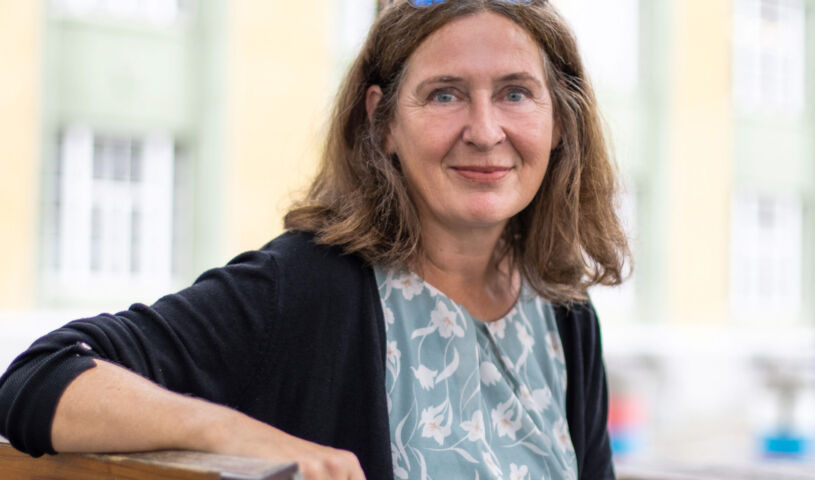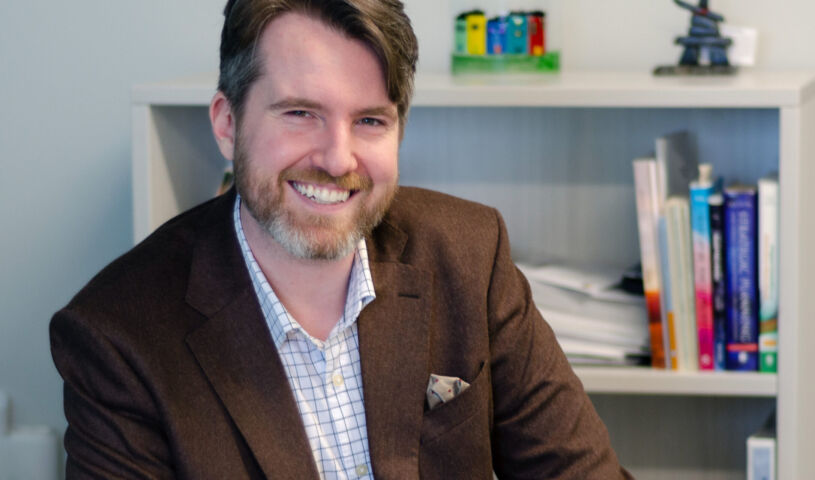Austrian World Mayor Prize honouree celebrates citizens, local government
 The 2023 World Mayor Prize was awarded to Elke Kahr, Mayor of Graz, Austria, for her selfless dedication to her city and its people. Photo: Elke Kahr
The 2023 World Mayor Prize was awarded to Elke Kahr, Mayor of Graz, Austria, for her selfless dedication to her city and its people. Photo: Elke Kahr
In the hours after the 2021 municipal elections in Graz, Austria, Elke Kahr’s mind was reeling. After all, the newly elected mayor was the first woman to hold that office in the history of her hometown. And given the city’s past can be traced back to the Middle Ages, that’s a lot of history.
Kahr, who was first elected as a city councillor in 1999, is also an Austrian communist and the daughter of a locksmith who grew up in a working-class district. Given all that, she never expected the voters in Graz – the second-largest city in Austria with a population of more than 300,000 – to entrust her with the role of mayor.
World Mayor Prize
With all that in mind, she also never believed she would just a few years later be named the winner of the 2023 World Mayor Prize. Announced back on Jan. 30, organizers with the United Kingdom-based City Mayors Foundation recognized Kahr for “her selfless dedication to her city and its people.”
Kahr has proven, according to the foundation, that citizen-oriented politics can be compelling and successful. Her decision to share a large part of her salary with people in need has attracted worldwide admiration.
But despite the adulation, Kahr admits she was shocked to receive the news of her selection.
“It was a total surprise and I felt very honored when I heard about winning the prize the night before the information went public,” Kahr said. “There are many local politicians who do not stand in the limelight although they work very hard for the citizens. Many of them would have deserved to get the prize, so I felt humbled at the same time.”
Testaments of Community Support
Back in September 2023, Kahr was named to the shortlist of 25 mayors nominated for the World Mayor Prize.
When she heard about making it to the shortlist, Kahr still didn’t seriously consider the notion she might be named winner of the prize. Kahr is quick to say there were better known names on the list, and mayors who are doing their best under far more difficult circumstances.
But even so, she was named as a finalist back in November 2023. Part of the nomination process involved people from across the globe writing in to support Kahr’s candidacy. Those submissions all praised Kahr’s efforts to help make Graz the best community it can be.
People would write heartfelt messages in support of Kahr. When she read those statements of support, Kahr admits to being “very happy and positively surprised.”
It isn’t surprising that Kahr should be so moved by the words of her supporters. In her personal essay (which every finalist had to write), Kahr mentions how personal contact with citizens has always been the most important aspect of her job as a local politician. It’s important, she explains, to talk with people face-to-face and to learn about their problems and concerns.
And it’s not always just about the big stuff.
“Small things matter – missing access, noisy neighbours, someone needs a stair lift or some building repairs are overdue,” Kahr said. “I often inform myself on-site. If there is a conflict, I make sure to hear from both sides. But sometimes the people I meet only want to chat or get their concerns off their chests.”
Mayoral Perspective
Neither her role as mayor, nor her participation in the World Mayor Prize, has changed Kahr’s perspective on local government.
For more than 30 years, Kahr has served her community as a councilwoman, as a member of the city government, or as the mayor. As such, Kahr said it has always been important for her to be directly involved with citizens.
This speaks to what she calls her “open door” policy. Everyone can come to Kahr’s office and discuss all kinds of matters. She doesn’t spend all day in the office, mind you. Kahr tries to spend as much time in the community as possible.
She doesn’t use consultant companies. Instead, she knows what the people of Graz are concerned with, and she knows “where the shoe pinches.”
Her direct responsibilities are, among others, housing and social affairs. This is where she tries to put in place a “citizen-oriented and low-threshold approach.” Although Graz is an overall wealthy city, many people find it hard to pay for their daily needs. This has proven especially so in recent years since the cost of energy (heating, electricity) has risen so sharply.
As a result, more and more people are spending a majority of their incomes just to cover rent, energy, and their basic daily needs.
“We need to adjust our social services to deal with this problem,” Kahr said. “At the same time, try to find political solutions on a federal level, like a maximum limit for rent increases and, where unavoidable, price regulations.”
Passion for Local Government
Kahr is quick to celebrate local government. And that appreciation hasn’t changed since her election as mayor. She has always felt that local politics is a “very rewarding field if you want to change things for the better.”
When it comes to being mayor, Kahr’s approach has been to always put citizens first and to downplay the politics of the role. Still, she is a fan of the World Mayor Prize in general. Too often, she said, local politics gets overlooked or ignored.
But local government, she said, is where citizens can get in direct contact with the people they elected. It is where they can have a say in affairs that have an important influence on their daily lives.
Democracy cannot work without good municipal governance, Kahr said. That’s why she said competitions like the World Mayor Prize can encourage a better style of local policies and democracy in general.
And that might be her word of advice to her fellow mayors around the world – don’t diminish your contribution, but always put the citizen first.
“I am grateful for all the support I received from so many people, most of whom I never met,” Kahr said. “I hope to always prove myself worthy of the accolade. All the mayors in the competition have many merits and I hope that I can encourage others to give their best for their fellow citizens as mayors.”
What Comes Next
Kahr served as a member of the city government for almost two decades before she was elected mayor.
As such, she knows the city, its people, and its inner workings by heart. In the Austrian political system, all parties who get a certain number of votes in local elections form a government together.
That’s why things haven’t changed dramatically for Kahr. The main difference between being mayor and a member of council is the abundance of new tasks that she has to add to her daily schedule.
But even with the added workload, she still has a passion for being mayor. As for what the future holds, only time will tell.
“I’m 62 years old now and still very passionate about local politics,” Kahr said. “I hope I can live up to the expectations. The people of Graz will have the final say in the next election.” MW
✯ Municipal World Executive and Essentials Plus Members: You might also be interested in Meyer’s article: First-time mayors look back on new experiences.
Sean Meyer is Digital Content Editor for Municipal World.
Related resource materials:


